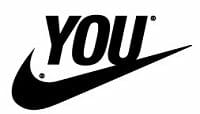5 Steps to Perfecting Your Personal Brand



You may not realize it, but everyone — including yourself — has a personal brand. It is arguably the most vital asset you can have in your career. Your individual trademark is essentially your reputation: who you are, what you value, and how you present yourself. Creating a strong brand can help others get to know you better and fully understand what you will be able to offer them in a professional capacity. By the way, your personal brand already exists, whether you like it or not. According to an AVG study, 92 percent of children under the age of two already have a digital footprint. Wild, right? Therefore, in this digital age it is imperative to proactively mold and master it to your advantage. Even if you are not a fan of the invasion social media, it is inevitably the future and can be a vital tool if used right. To help you get started, here are five steps for perfecting your personal brand.
1. Create Your Mission Statement:
Similar to a company mission statement, this acts as a guiding summary for your future decisions and actions. It can offer an explanation as to who you are and what success means to you. Developing a statement like this will take a bit of reflection on past successes, your passions, and what makes you tick. Ultimately, it can be whatever is most authentic or important to you, but consider incorporating things like: core values, purpose, and long-term goals. It can be a simple sentence or headline, but should encompass who you believe yourself to be, and how you live (or strive to live) your life. If you are running your own business, it comes into play even more because people are going to associate you with the company, and the perceptions of both should somewhat align. Equally important, when launching your own business, you should ensure that what you are creating lines up with what you want to accomplish in the world as well. Think about it long and hard, and create a clear picture of why you are doing what you are doing.
2. Cultivate Your Biography:
It would be nice if everyone had a personal writer to craft the most flattering and eloquent bio specifically for you, but that is usually not the case. I understand some people have a hard time writing about themselves, especially when highlighting accomplishments. You do not want to come across as arrogant, but you also need to hype yourself up! There is nothing wrong with that, and everyone does to an extent. It is great if you know how awesome you are, but that may not get you far if others do not get to witness this greatness. So, give it a shot! Do not focus on the negatives and failures, because we all have those. Instead, look at how you rose above the road blocks, and give yourself some credit where credit is due. Your biography will be important many times down the road, from social profiles and networking events, to introductions and speaking opportunities. Include items like your education history, work experience, press, volunteer work, awards or recognition, even hobbies and personal tidbits. Coming across as warm and personable can go a long way; you want people to know you are relatable and human. You can use then this bio to write a shortened version for social media (approximately 2-3 sentences). Make sure to constantly look back on it to refresh with new information.
3. Hone Your Strengths:
Everyone has one thing that they are best at — possibly even better than anyone else. Yours is your forte. Specializing in a precise skill or skills within your industry will give you an edge and help you stand out. This is how companies and clients will be able to differentiate between you and other prospects — and what will make your current boss want to keep you around. If you do not already have one, get one. Take something that you are passionate about and practice until near perfect. If you feel like you do not have a passion that translates in your current career, then figure out the top skills in your trade and learn. Through this exercise, you can potentially find what you are particularly adept at and use this to your advantage.
4. Get Social:
Social media is one of the best (and quickest) ways to broadcast your personal brand. You can promote yourself via any number of platforms and tactics — sharing articles that interest you on Twitter, or creating status updates about current events or trends on LinkedIn/FB. Follow others in your space and do not be shy about jumping in on relevant conversations to put your name out there. Of course, it is easy to become a bit too personal on social media. Make sure you know where to draw the line. By having a firm understanding of what you stand for online, you will be able to distinguish what tweets are “on” or “off” brand.
5. Build Your Network:
Start generating word of mouth. Networking is not just necessary during the job search; it is also a wonderful way to learn from others in your field and make connections that may end up being fruitful down the line. Create a blog or personal website. Keep communication open. Sharing your personal brand with your network can be intimidating, but putting it out there for criticism and feedback can be a vital step in the building of your unique brand. This is an ongoing process and may take years to fully perfect (if ever). Take the time to truly get to know people.
What do you think is important when developing a strong personal brand? Share in the comments!
